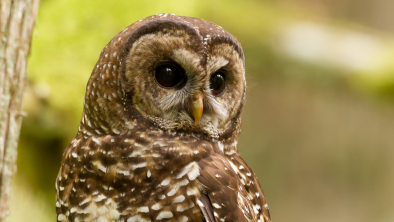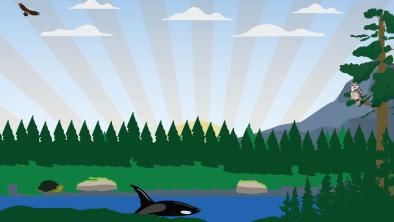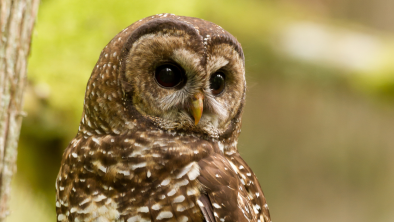Making a habit of neglecting habitat
Globe and Mail
VANCOUVER -- When Premier Gordon Campbell's government finally returns to the legislature next spring, having cancelled the fall sitting, its strategy will be pretty simple.
Bring in a strong budget, unveil some new green policies, and win a third term in the May election by appealing to voters on the two issues that concern them most: management of the economy and protection of the environment.
The economy may have worsened by next spring, but the Liberals have a strong track record and are happy to be compared with the New Democratic Party on that front.
The government is more vulnerable, however, when it comes to the environment.
Mr. Campbell's carbon tax, while it might be good environmental policy, is proving a tough sell. The NDP has effectively undermined it by focusing on the cost to taxpayers, rebranding it as a gas tax that hurts ordinary people while letting big polluters off easily.
The government's failure to address the problems fish farms cause is another environmental weak point. Mr. Campbell struck an all-party committee to research the issue, then failed to act on its recommendations. With wild salmon stocks in crisis, particularly in the Broughton Archipelago where fish farming is concentrated, the government appears to have bungled a key issue.
The third great weakness in the Liberal environmental platform will become clear next spring, when an amendment to the B.C. Wildlife Act is expected to be introduced.
The species-at-risk regulation, which is now being developed, is supposed to be the government's answer to myriad environmental problems that have put everything from spotted owls to killer whales at risk in British Columbia.
The "SAR Reg" as it's called in government briefing notes, ostensibly is meant to lay out a framework for saving the 1,600 species threatened in the province.
Unfortunately for the Liberals, not to mention the spotted owls, it does not.
Details leaked to the Western Canada Wilderness Committee and Ecojustice show the regulation will list only 96 species, and that it will not protect habitat.
"It's junk," said Gwen Barlee, a director of the Western Canada Wilderness Committee, when she reviewed a government briefing note that describes the SAR Reg.
"There are several things that show it is not really meaningful," she said, pointing out that it proposes listing only six mammal and seven bird species.
"There are probably over 100 bird [species at risk] and probably 85 to 100 mammals at risk in B.C., so this is just shocking.
"And they say really clearly in this briefing note that it is not a habitat mechanism for species-at-risk conservation. The government knows that 86 per cent of the species at risk in B.C. are at risk because of loss of habitat ... so this is completely and utterly inadequate," Ms. Barlee fumed.
Susan Pinkus, a staff scientist at Ecojustice, said instead of dealing with how to protect habitat, the SAR Reg discusses saving "residences" for endangered species.
"Most species don't have residences," she scoffed. "You only have a residence if you have a nest or a little thing like a burrow. The residence of an endangered species is really the last thing you need to protect. It's not where an animal feeds. It's not where an animal rears its young."
In an analysis of the plan, Sean Nixon, a lawyer with Ecojustice, said the reference to protecting "residences" but not habitat makes a mockery of the proposed regulation change.
"What's the residence of a grizzly bear?" he asked. "What about the habitat the bear uses for the other 75 per cent of the year? What's the residence of a fish?"
Good questions. And if they strike a chord with voters, the Liberals just might find themselves looking for a new residence of their own next spring. They are not, after all, a protected species themselves.


